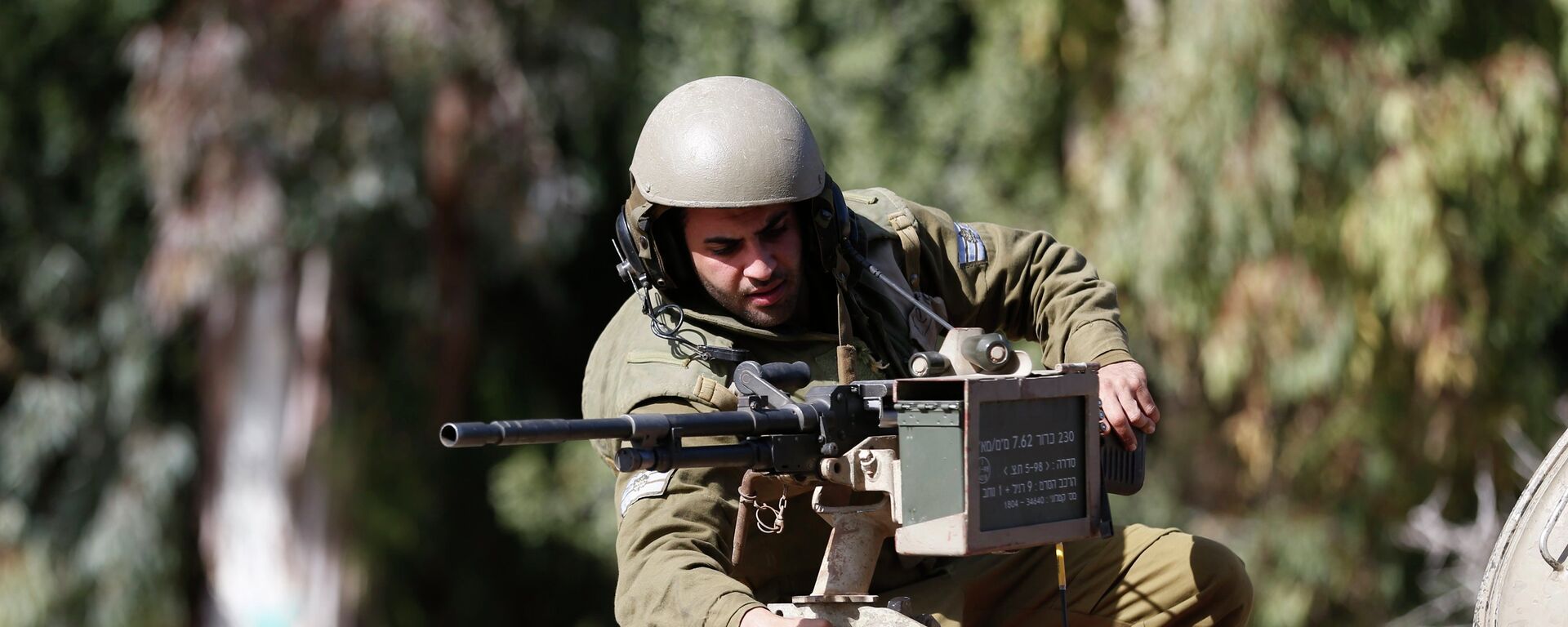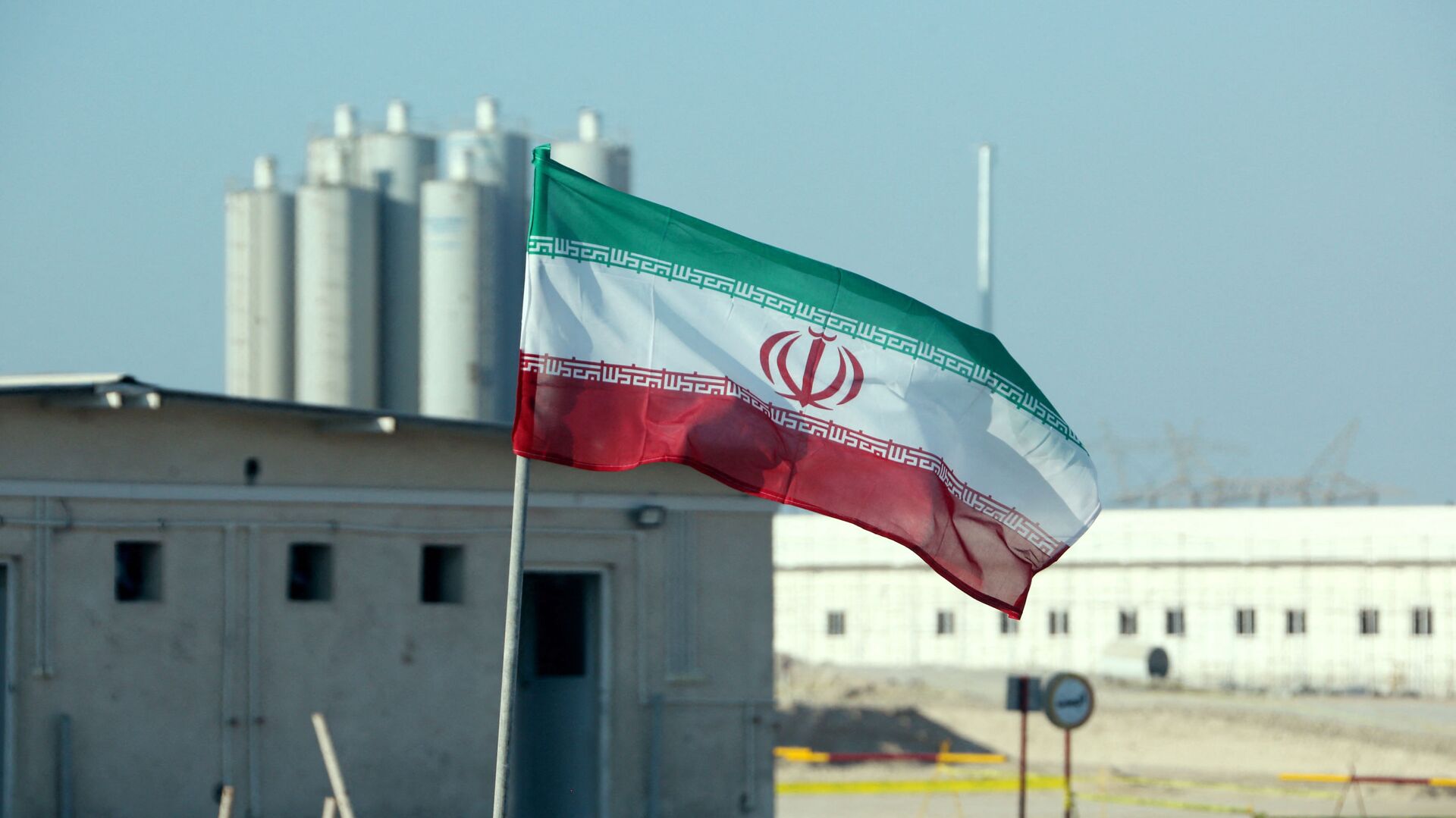https://sputnikglobe.com/20211222/white-house-us-israel-agree-irans-rapidly-advancing-nuke-programme-is-grave-threat-to-peace-1091728133.html
White House: US, Israel Agree Iran’s 'Rapidly Advancing' Nuke Programme is ‘Grave Threat’ to Peace
White House: US, Israel Agree Iran’s 'Rapidly Advancing' Nuke Programme is ‘Grave Threat’ to Peace
Sputnik International
The White House statement comes in the wake of negotiations in Vienna on the possibility of restoring the Joint Comprehensive Plan of Action (JCPOA) - an accord envisaging Tehran scaling back its nuclear programme in exchange for sanctions relief.
2021-12-22T15:58+0000
2021-12-22T15:58+0000
2023-01-15T17:25+0000
iran
middle east
joint comprehensive plan of action (jcpoa)
us
israel
https://cdn1.img.sputnikglobe.com/img/07e5/04/12/1082662088_0:164:3059:1884_1920x0_80_0_0_b2aa4e2320f92bb362003c18f4e98fa1.jpg
The United States and Israel have agreed that Iran's "rapidly advancing" nuclear programme poses a "grave threat" to regional and international security, the White House said on Wednesday.According to the White House, both Washington and Tel Aviv are confronting "all aspects" of the threat allegedly posed by Iran, which is said to include not only its nuclear programme, but also "destabilising activities and support for terrorist proxy groups".The statement followed a meeting between US National Security Adviser Jake Sullivan and his Israeli counterpart Eyal Hulata in Jerusalem, where the two officials discussed their concerns related to Iran.Both sides exchanged views on the way forward and agreed to continue the dialogue on regional security. The two delegations also discussed bilateral cooperation on strategic issues important to the entire region, according to the statement. Sullivan reaffirmed the US’s strong commitment to Israeli security and self-defence.The meeting between the two officials comes as another round of nuclear talks is expected to kick off in Vienna after the Christmas holidays, with negotiators discussing the possibility of reviving the JCPOA accord that was penned in 2015. The so-called "nuclear deal" envisaged Iran scaling back its nuclear programme in exchange for sanctions relief. The accord was inked between the Islamic Republic and the P5+1 countries (the United States, China, France, Russia, and the United Kingdom, plus Germany), along with the European Union. After former US President Donald Trump unilaterally exited the deal in 2018, Tehran stepped away from its nuclear commitments.Since the idea to revive the botched deal emerged after Trump's successor, Joe Biden, assumed office, Israel has been voicing its opposition to it. Particularly, Tel Aviv has been alleging that Tehran is close to developing a nuclear weapon, even though the Islamic Republic has repeatedly stated that its nuclear programme remains exclusively peaceful.With talks in Vienna to continue, the US has signalled that it is mulling additional options on Iran in case diplomacy fails to resolve the issue.
https://sputnikglobe.com/20211221/israel-unable-to-strike-iran-without-green-light-from-us-tehrans-top-commander-says-1091675606.html
iran
israel
Sputnik International
feedback@sputniknews.com
+74956456601
MIA „Rosiya Segodnya“
2021
News
en_EN
Sputnik International
feedback@sputniknews.com
+74956456601
MIA „Rosiya Segodnya“
Sputnik International
feedback@sputniknews.com
+74956456601
MIA „Rosiya Segodnya“
white house, iran, israel, us, jake sullivan, eyal hulata, jerusalem, jcpoa, nuclear talks, vienna talks, rapidly advancing nuclear programme, iran's nuclear programme, iran's nuclear weapon,
white house, iran, israel, us, jake sullivan, eyal hulata, jerusalem, jcpoa, nuclear talks, vienna talks, rapidly advancing nuclear programme, iran's nuclear programme, iran's nuclear weapon,
White House: US, Israel Agree Iran’s 'Rapidly Advancing' Nuke Programme is ‘Grave Threat’ to Peace
15:58 GMT 22.12.2021 (Updated: 17:25 GMT 15.01.2023) The White House statement comes in the wake of negotiations in Vienna on the possibility of restoring the Joint Comprehensive Plan of Action (JCPOA) - an accord envisaging Tehran scaling back its nuclear programme in exchange for sanctions relief.
The United States and Israel have agreed that Iran's "rapidly advancing" nuclear programme poses a "grave threat" to regional and international security, the White House said on Wednesday.
According to the White House, both Washington and Tel Aviv are confronting "all aspects" of the threat allegedly posed by Iran, which is said to include not only its nuclear programme, but also "destabilising activities and support for terrorist proxy groups".
The statement followed a meeting between US National Security Adviser Jake Sullivan and his Israeli counterpart Eyal Hulata in Jerusalem, where the two officials discussed their concerns related to Iran.
"The officials affirmed that the United States and Israel are aligned in their determination to ensure that Iran never gets a nuclear weapon", the White House said.
Both sides exchanged views on the way forward and agreed to continue the dialogue on regional security.
The two delegations also discussed bilateral cooperation on strategic issues important to the entire region, according to the statement. Sullivan reaffirmed the US’s strong commitment to Israeli security and self-defence.
The meeting between the two officials comes as
another round of nuclear talks is expected to kick off in Vienna after the Christmas holidays, with negotiators discussing the possibility of reviving the JCPOA accord that was penned in 2015.
The so-called "nuclear deal" envisaged Iran scaling back its nuclear programme in exchange for sanctions relief. The accord was inked between the Islamic Republic and the P5+1 countries (the United States, China, France, Russia, and the United Kingdom, plus Germany), along with the European Union. After former US President Donald Trump unilaterally exited the deal in 2018, Tehran stepped away from its nuclear commitments.

21 December 2021, 09:53 GMT
Since the idea to revive the botched deal emerged after Trump's successor, Joe Biden, assumed office, Israel has been voicing its opposition to it. Particularly, Tel Aviv has been alleging that Tehran is close to developing a nuclear weapon, even though the Islamic Republic has repeatedly stated that its nuclear programme remains exclusively peaceful.
With talks in Vienna to continue, the US has signalled that it is mulling additional options on Iran in case diplomacy fails to resolve the issue.




